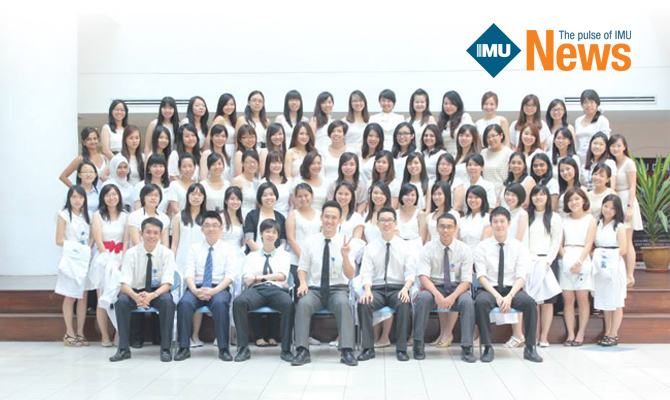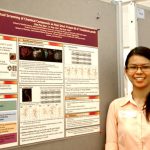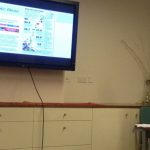Cheong Siew Yan, decided to go into the field of dietetics because of her belief in ‘one should live to eat’ but often people tend to under/overeat, causing harm to their health. She started her studies in Nutrition and Dietetics (N & D) at IMU in 2009 and completed her studies in 2013. After a stint of 3 months as a Dietitian at a slimming centre, she discovered that although she enjoyed being a Dietitian, sales, which was also part of the KPIs, is not her forte. She then decided to work as a Research Assistant for a breast cancer study in University Malaya. The purpose of the study was to investigate the relationship between dietary intake and breast cancer. Describing her experience as a research assistant, Siew Yan said, “The job scope of a research assistant (RA) is very much similar to doing the Research Project in Semester 6 of our N & D programme, where we need to collect and analyse the data to answer the research question. For the project that I was handling, I need to collect anthropometry and dietary intake information from the participants to determine their relationship with breast cancer.”  “While collecting the data, I came to know that most of the participants have been on restricted diets and practicing some food myths, which may not be scientifically proven. I was not able to counsel them as my role was just to collect data – the data would be biased if I were to counsel them – that was when I felt helpless. Hopefully, the presence of more scientific research will help us all in gaining a better understanding in this area and avoid unnecessary food taboos.” After a year as a research assistant, Siew Yan had the opportunity to work as a Clinical Trials Assistant (CTA) in one of the Contract Research Organisations (CROs). With no prior experience in clinical research, she struggled a little in the beginning.
“While collecting the data, I came to know that most of the participants have been on restricted diets and practicing some food myths, which may not be scientifically proven. I was not able to counsel them as my role was just to collect data – the data would be biased if I were to counsel them – that was when I felt helpless. Hopefully, the presence of more scientific research will help us all in gaining a better understanding in this area and avoid unnecessary food taboos.” After a year as a research assistant, Siew Yan had the opportunity to work as a Clinical Trials Assistant (CTA) in one of the Contract Research Organisations (CROs). With no prior experience in clinical research, she struggled a little in the beginning.
“It was a great change from being a research assistant to Clinical Trials Assistant (CTA) – is beyond just nutrition and dietetics but more towards administrative work. As a CTA, you will not deal directly with research participants but more to in house management. CTA will need to provide clinical support for projects according to SOPs and ICH Good Clinical Practice (GCP) guidelines.”
“Management of study supplies, preparing investigator payments, organising meetings etc are part of the job scope. It is also essential to update and maintain study-specific trial management files, tools and systems for tracking purposes. I was totally clueless about clinical trials and it took me quite a while to understand about the processes and SOPs of different projects.”
“On top of that, I will also need to know the requirements of conducting clinical trials in different countries as most clinical trials are multi-centred across the world.”
On-job experiences and medical knowledge gained from university got her through the barriers. Siew Yan was promoted to Clinical Research Associate (CRA) after two years working in this field.
“The huge responsibility falls on a Clinical Research Associate (CRA) to monitor clinical trials conducted according to protocols and ICH GCP. I will need to ensure the rights, safety and well-being of all human subjects who participate in the study. Besides, I have to verify that the data collected are accurate and be assured that all adverse events are being reported and documented promptly. CRA will need to work very closely with the medical team such as doctors, nurses and other healthcare professionals to resolve subject issues”. 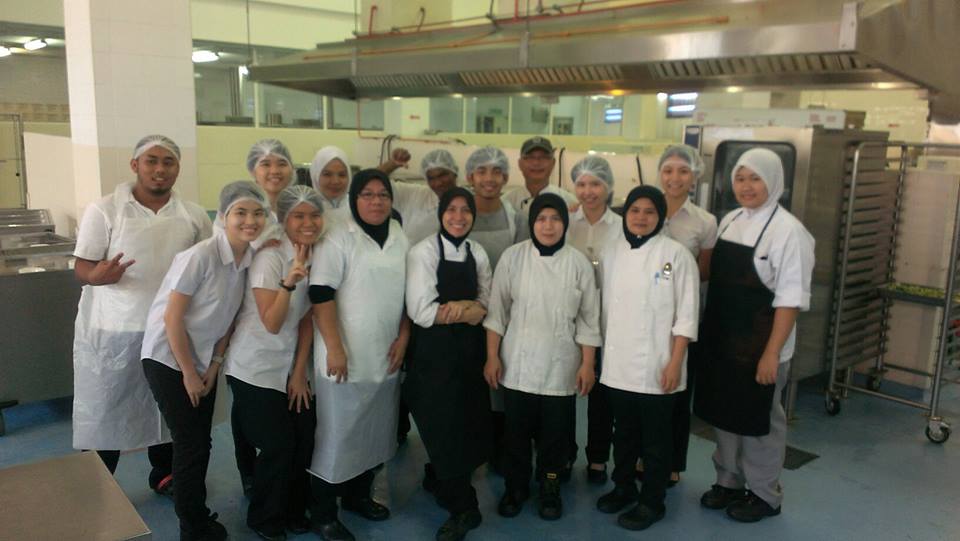 Recalling fondly of her time at IMU, Siew Yan says, “I did not know how to cook before I joined IMU but food service was part of the N&D course. We needed to learn to prepare therapeutic meals for some of the subjects – that is when I started to cook and I enjoy doing it until now! It was also my first time to live outstation away from home during the practicum year. We had to stay with group mates and that’s when we get really close to each other. We learnt to be independent and at the same time, helped each other grow together. It feels really great to graduate in the largest batch of N&D in IMU!”
Recalling fondly of her time at IMU, Siew Yan says, “I did not know how to cook before I joined IMU but food service was part of the N&D course. We needed to learn to prepare therapeutic meals for some of the subjects – that is when I started to cook and I enjoy doing it until now! It was also my first time to live outstation away from home during the practicum year. We had to stay with group mates and that’s when we get really close to each other. We learnt to be independent and at the same time, helped each other grow together. It feels really great to graduate in the largest batch of N&D in IMU!”
Siew Yan feels that the wide varieties of subjects learnt at IMU which includes basic pharmacology, pathophysiology as well as clinical and management of diseases have helped her a lot in her career. These subjects provided her the opportunity to learn and understand the basics of some common diseases such as CKD, diabetes, cardiovascular disease which are the hot topics for research.
“Definitely, practicum year has helped us to build up our interpersonal skills and prepared us well for the working life. Being placed at different settings such as hospital, Klinik Kesihatan and in the community has gained me an insight in Malaysia’s healthcare settings. Reading through medical notes and understanding the subjects’ conditions are required in my current job as the subject’s safety during their participation in the study is our main priority. Placement in a hospital setting has given us this opportunity to practice reading medical notes.” 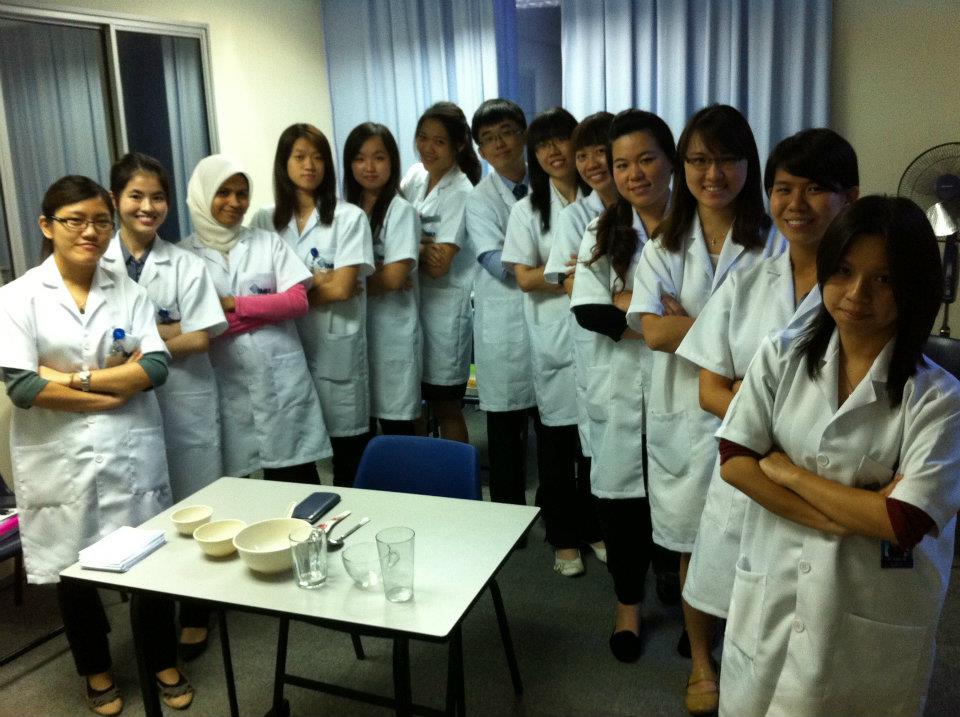 In the future, Siew Yan plans to look for opportunities to be involved in food policy related projects. She feels that poor diets are now being the leading cause of death in certain countries and more research in this area would help in minimising the harm. She might even go for further studies in future as learning is a lifelong process.
In the future, Siew Yan plans to look for opportunities to be involved in food policy related projects. She feels that poor diets are now being the leading cause of death in certain countries and more research in this area would help in minimising the harm. She might even go for further studies in future as learning is a lifelong process.
Siew Yan’s advice to future dietitians is “N&D is a fun and interesting course. Be determined and stay focused on what you do. The knowledge that you gained from university is a stepping stone for you to enter into the working world. This course is not limited to nutrition and dietetics only, you can definitely go way beyond that!”




